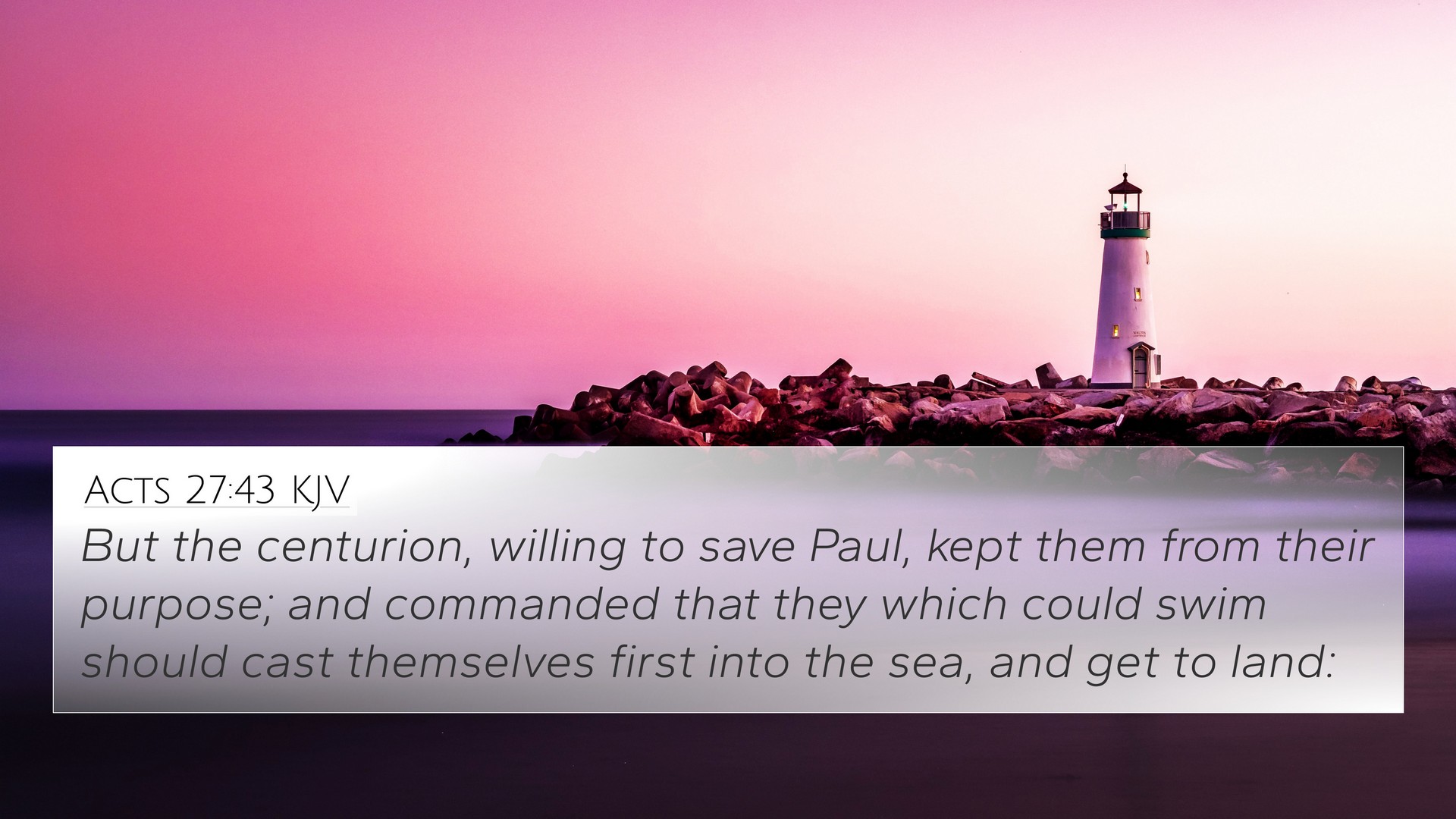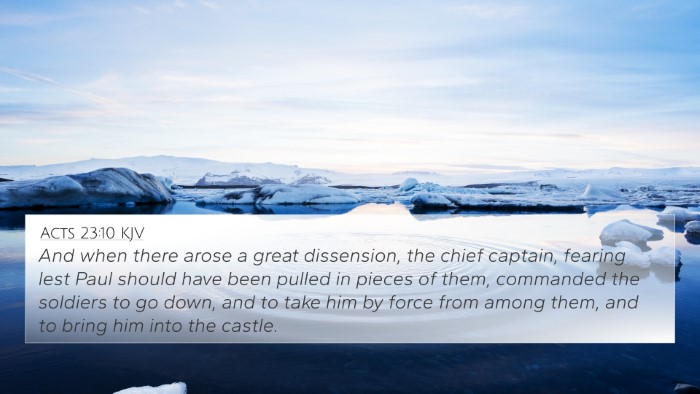Summary of Acts 27:43
Acts 27:43 states: "But the centurion, wishing to save Paul, kept them from their purpose, and commanded that they which could swim should cast themselves first into the sea, and get to land."
Exegesis and Commentary
This verse occurs in the narrative where Paul is a prisoner on a ship that encounters a violent storm leading to the shipwreck. As they approach land, the soldiers plan to kill the prisoners to prevent escape, but the centurion intervenes to protect Paul.
Matthew Henry's Commentary
Matthew Henry reflects on the centurion's commendable character, showing mercy towards Paul. This act of kindness emphasizes God's providence in preserving His servants even amidst peril. Henry notes that the centurion’s decision to save Paul illustrates how God can use authority figures to fulfill His purposes.
Albert Barnes' Notes
Albert Barnes highlights the significance of the centurion's action as a display of moral integrity. He indicates that the centurion recognized Paul’s value, both as a person and for the message he represents. Barnes also stresses the importance of the spiritual protection God affords His people through the actions of others.
Adam Clarke's Commentary
Adam Clarke offers insights into the historical context, explaining the role of centurions in the Roman army, often characterized by a strict adherence to duty. The fact that this centurion acted out of compassion shows an exception to typical military conduct. Clarke suggests that Paul's faith and character impressed the centurion, leading to his commendable actions.
Thematic Analysis
This verse brings forth several themes:
- Divine Protection: The preservation of Paul amid danger illustrates God's protective hand over His chosen servants.
- Mercy and Justice: The centurion represents a compassionate figure in a situation filled with potential violence and injustice.
- Faith and Influence: Paul’s steadfastness and character have a profound influence on those around him, exemplified by the centurion's decision.
Bible Verse Connections
This verse can be linked to various other scriptures as part of a larger narrative of God's provision and the interplay of human authority and divine purpose. Here are some cross-references that relate to Acts 27:43:
- Romans 8:28: "And we know that in all things God works for the good of those who love him, who have been called according to his purpose."
- 1 Peter 2:17: "Honor everyone. Love the brotherhood. Fear God. Honor the emperor."
- Psalm 91:11: "For he will command his angels concerning you to guard you in all your ways."
- Jeremiah 29:11: "For I know the plans I have for you, declares the Lord, plans to prosper you and not to harm you, plans to give you hope and a future."
- Matthew 10:29-31: "Are not two sparrows sold for a penny? Yet not one of them will fall to the ground outside your Father’s care."
- Acts 12:1-11: The account of Peter’s miraculous escape from prison relates to God’s intervention and protection.
- Philippians 1:19: "For I know that through your prayers and the help given by the Spirit of Jesus Christ what has happened to me will turn out for my deliverance."
Understanding Cross-Referencing in the Bible
Cross-referencing Biblical texts is a crucial aspect of deeper study. It allows readers to:
- Identify connections between verses and themes.
- Gain comprehensive insights into Biblical events and teachings.
- Understand the historical and cultural contexts of scripture.
Tools for Bible Cross-Referencing
Utilizing Bible reference resources enhances one’s study experience. Some tools for Bible cross-referencing include:
- Bible concordance: A comprehensive listing of verses related to specific words or themes.
- Cross-reference Bible guide: Provides suggestions for related verses.
- Online Bible software: Tools that offer extensive cross-reference capabilities.
Conclusion
Acts 27:43 serves as a profound reminder of God's provision and the influence that faith can bring into the lives of others. Through the lens of multiple commentaries and cross-referenced scripture, readers can better appreciate the complexities of divine interaction and the thread of mercy woven throughout the Biblical narrative.









